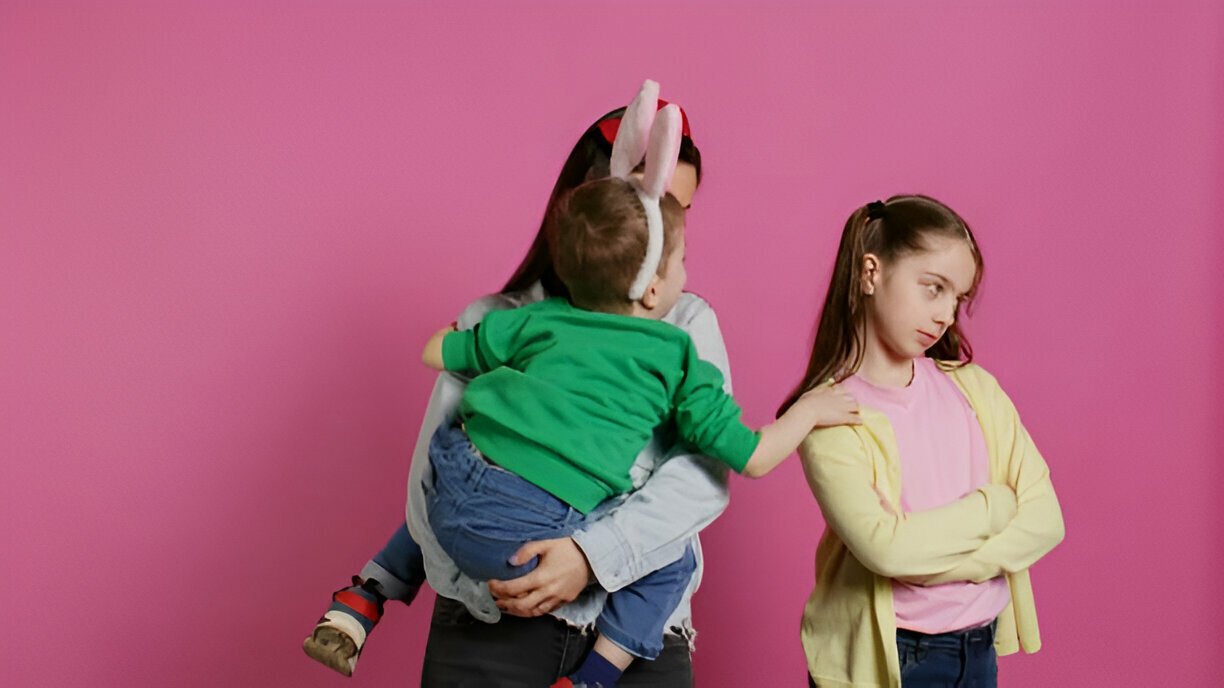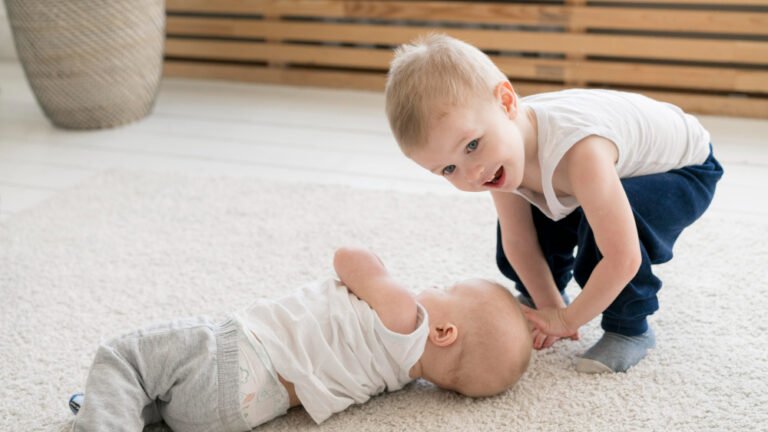7 things to never tease your child about

Words have power—especially when they come from the people our children trust most. While playful banter can strengthen family bonds and create joyful memories, certain topics should remain off-limits when it comes to teasing our kids. Understanding these boundaries isn’t just about being a “nice” parent; it’s about protecting your child’s developing sense of self and building a foundation of trust that will last a lifetime.
Research shows that thoughtless teasing can leave lasting emotional scars, affecting everything from self-esteem to future relationships. Child development experts agree that while gentle, reciprocal humor has its place in family dynamics, parents must recognize when playful comments cross the line into harmful territory.
Understanding the Difference Between Playful and Harmful Teasing
Not all teasing is created equal. Healthy teasing is reciprocal, lighthearted, and stops immediately when someone expresses discomfort. It builds connection rather than tearing it down. Harmful teasing, on the other hand, targets sensitive areas, continues despite obvious distress, and often reflects the teaser’s need to feel superior rather than create genuine fun.
Dr. Carol Bishop Mills, a communication studies professor, emphasizes that parents should pay close attention to their child’s reactions. “If your child looks away, tears up, or doesn’t engage in banter, you have to recognize that they’re not enjoying it,” she explains. When children show these signs, it’s time to stop immediately and apologize if necessary.
The key difference lies in the child’s response and the nature of the topic. Teasing about forgetting homework might be acceptable if done gently and if your child can laugh along. Teasing about physical appearance or personal struggles crosses into dangerous territory, regardless of your intentions.
Body Image and Physical Traits

Perhaps no area requires more careful navigation than a child’s physical appearance. Comments about weight, height, facial features, or any other physical characteristics can profoundly impact how children see themselves. Even seemingly innocent observations like “You’re such a skinny mini!” or playful references to big ears or freckles can plant seeds of insecurity that grow throughout childhood.
Children are actively forming their self-image during crucial developmental years. When parents—their primary source of validation—make comments about their appearance, kids internalize these messages deeply. What feels like harmless observation to an adult becomes a defining characteristic in a child’s mind.
This sensitivity extends beyond obvious targets like weight or height. Teasing about glasses, braces, hair texture, or any distinctive feature sends the message that these traits are worthy of comment or somehow problematic. Instead of focusing on appearance, celebrate your child’s actions, efforts, and character traits that truly matter.
Academic Performance and Intelligence
School performance represents another area where well-meaning parents often stumble. Comments like “What? Our little genius got a B?” might seem supportive, but they create pressure and suggest that your love or pride depends on academic achievement. Similarly, teasing about struggles with certain subjects can compound existing stress and make children feel inadequate.
Every child has unique strengths and learning patterns. Some excel in mathematics while struggling with reading; others shine in creative subjects but find science challenging. When parents tease about academic performance—whether high or low—they risk creating anxiety around learning and achievement.
Rather than commenting on grades or test scores, focus on effort and growth. Celebrate the hard work your child puts into studying, praise their curiosity about new topics, and offer support when they face challenges. This approach builds resilience and maintains the joy of learning, regardless of specific outcomes.
Academic teasing becomes particularly harmful when it involves comparisons to siblings or other children. Each child’s educational journey unfolds differently, and comparisons create resentment while damaging self-esteem.
Hobbies and Personal Interests
Children explore various activities as they discover their passions and talents. This exploration is crucial for developing identity and confidence. When parents tease about these interests—whether it’s a boy who loves ballet or a girl obsessed with trucks—they risk stifling creativity and self-expression.
Personal interests reflect deeper aspects of who our children are becoming. Dismissive comments or teasing about their choices sends the message that their preferences don’t matter or aren’t valid. This can lead children to abandon activities they genuinely enjoy in favor of pursuits they think will gain parental approval.
Support your child’s exploration of different hobbies and interests, even if they seem unusual or temporary. Today’s passion for dinosaurs might evolve into tomorrow’s career in paleontology, or it might simply represent a phase of learning and growth. Either outcome has value.
Remember that children often change interests as they grow and discover new possibilities. This natural evolution shouldn’t be subject to teasing or criticism, but rather celebrated as part of healthy development.
Fears and Insecurities

From monsters under the bed to anxiety about speaking in public, childhood fears are real and valid experiences, even when they seem irrational to adults. Teasing children about their fears doesn’t help them overcome these challenges—it often makes them worse while damaging the trust relationship between parent and child.
Fear responses are often hardwired traits, similar to introversion or extroversion. Some children are naturally more cautious, while others approach new situations with confidence. Neither tendency is superior, and both serve important purposes in human development.
When children share their fears with parents, they’re offering trust and seeking comfort. Responding with teasing breaks that trust and teaches children to hide their vulnerabilities rather than seeking support. This pattern can persist into adulthood, affecting their ability to form close relationships and ask for help when needed.
Instead of teasing about fears, validate your child’s feelings while offering gentle support and reassurance. Help them develop coping strategies and gradually build confidence through positive experiences.
Social Skills and Friendships
Social dynamics can be challenging for children at any age. Some kids naturally make friends easily, while others need more time to warm up to new people. Teasing about social skills—whether it’s calling a child “shy” or making jokes about their friendships—can exacerbate existing insecurities and create additional social anxiety.
Comments about opposite-gender friendships deserve particular attention. Asking “Is she your girlfriend?” when your son plays with a female classmate teaches children that cross-gender friendships are somehow different or romantic. This can discourage healthy, platonic relationships and create unnecessary self-consciousness about normal social interactions.
Similarly, teasing shy children about their reserved nature doesn’t encourage socialization—it makes them more self-aware and potentially more withdrawn. Introversion is a personality trait, not a flaw that needs fixing through embarrassment or pressure.
Support your child’s social development by creating comfortable opportunities for interaction, modeling positive social skills, and celebrating their unique approach to relationships. Some children thrive in large groups, while others prefer intimate friendships. Both paths are perfectly valid.
Creating a Supportive Communication Environment
Building a family culture that supports open, respectful communication requires intentional effort. Start by modeling the behavior you want to see. If you make a mistake and tease your child about something sensitive, apologize genuinely and explain why the comment was inappropriate.
Establish family rules about respectful communication that apply to everyone. If teasing happens in your household, ensure it’s reciprocal and that everyone understands the boundaries. Children should feel comfortable teasing parents about harmless quirks, just as parents might gently joke with kids about age-appropriate topics.
Pay attention to your child’s emotional cues and respect their boundaries immediately when they indicate discomfort. Some children are more sensitive than others, and what feels harmless to one child might be deeply hurtful to another.
Encourage your children to speak up when comments make them uncomfortable, whether from family members or others. Teaching them to advocate for themselves builds confidence and helps them navigate social situations throughout life.
The Long-Term Impact of Mindful Communication

The words we choose as parents echo in our children’s minds long after the moment passes. Thoughtful communication builds trust, strengthens relationships, and helps children develop healthy self-esteem. When children feel safe from judgment and teasing at home, they’re more likely to share their struggles, celebrate their successes, and maintain close family connections as they grow.
Conversely, repeated teasing about sensitive topics can create lasting insecurities and damage the parent-child relationship. Children who don’t feel emotionally safe at home often become more secretive and may seek validation in unhealthy ways.
Remember that your role as a parent includes being your child’s safe harbor in an often challenging world. While the outside world may include teasing, criticism, and judgment, home should remain a place where children feel unconditionally accepted and supported.
Building Stronger Family Bonds Through Respect

Creating a teasing-free environment around sensitive topics doesn’t mean eliminating humor from family life. Instead, it means being more thoughtful about the types of jokes and comments that build connection versus those that create distance.
Focus on situational humor, funny stories, and gentle observations about harmless quirks that everyone can laugh about together. Share embarrassing moments from your own childhood, celebrate family inside jokes, and create positive memories through laughter that includes rather than excludes.
When children feel truly safe and supported at home, they’re more likely to develop into confident, resilient adults who can handle life’s challenges while maintaining strong family connections. The effort you put into mindful communication today creates a foundation that will support your relationship with your child for decades to come.
Your words have the power to shape how your child sees themselves and their place in the world. Choose them wisely, speak them with love, and remember that the goal isn’t perfection—it’s creating an environment where your child feels valued, respected, and unconditionally loved for exactly who they are.






